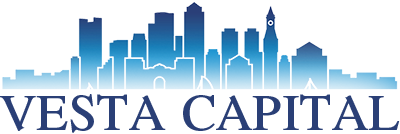Buy A Home
Buying a home has been considered a cornerstone of the American dream.

Why Purchase?
Buying a home has been considered a cornerstone of the American dream. Whether it's your first home, 2nd home or one of many, getting a home loan to purchase a home is one of the most significant financial decisions you’ll make in your life. Many people decide to buy because of all the benefits associated with owning a home
Take control of your situation. Avoid rent increases and having to move out every couple years because your rent has become too expensive. Buying now will avoid any kind of rent increase and a mortgage payment increase. Your payment can actually go down if you refinance again within a few years to either lower your rate or to lower your payment if the market is better. Furthermore, renting does not provide the ability for real estate appreciation. Build equity. Grow your assets with the principal portion of your mortgage payments and as your property value increases so does your assets. The time is now, waiting is only costing you money.
The Tax benefits. Deduct mortgage interest and real estate property taxes on your income tax returns. It’s important to discuss any potential deductions with a licensed a tax professional.
Purchase Programs
When purchasing a home you have a few options depending on your credit and income used to qualify. For example if you have low credit score and little money down, then we would put you in a FHA loan rather than conventional loan since conventional loans pricing is better with a high credit score. If you are self employed and need a bank statement program then we would have to put you in an Alternative documentation program. We would go through your options during the pre-qualification process to figure out what loan programs works for you.
Conventional Loans
Can go up to 97% LTV for first time home buyers or 95% if you are not a first time home buyer. Conventional credit score minimum is 620 but higher score is recommended to qualify for a better rate since credit is a factor when pricing your loan. If you put less than 20% down then you will have PMI. There is PMI on the loan until you pay it down below 78% LTV from purchase price or if your value has increased and you and are below 80% LTV, you can request from the lender to have the PMI removed. Conventional loans also offers NO PMI on their loans but the rate is higher and the higher the score the lower the rate. No PMI is best if your credit score is above 740 to 770.
FHA Loans
(Stands for Federal Housing Authority) Can go up to 96.5% LTV on a purchase. FHA minimum credit score goes down to 80 and credit score does not play a big factor in rate of your loan. FHA normally comes with a lower rate than conventional loans but their PMI is more expensive than conventional loans so your overall payment would be a little bit higher.
FHA requires PMI on all their loans regardless of your loan to value and the PMI is required to be paid for 11 years. This is a good program for someone looking to get into a home with little money down with not so great credit.
Alternative Doc Buying Program-
Alternative documentation are documents that serve as proof of income for loans. Alternative documentation loans are generally more flexible as compared to conventional loans and are generally not verified. Examples of such documents are bank statements, 1099, VOE, and or Assets used for income. Investment purchase properties can get a stated income loan or debt service coverage ratio (DSCR) which is using the rental income to qualify for the loan. Bank statements, 1099, VOE used for income with a max loan to value of 90% LTV. Investment properties has a max LTV of 85% 6-12 months reserves are required Loans are typically for self-employed borrowers or investors VA Loans-
A VA loan is a mortgage guaranteed by the U.S. Department of Veterans Affairs. VA loans offered exclusively to active duty and veteran service members and their spouses. The benefits of a VA loan can be exceptional: lower interest rates, no required down payment, no prepayment penalty, and no monthly mortgage insurance premiums with credit scores as low as 620.
Down Payment Assistance Programs
Worried that you can’t afford a down payment on a home? Here’s some good news: If you’re a first-time home buyer, you might qualify for down payment assistance. The amount you’ll need will vary and some mortgage programs require no down payment at all. While there are variations, coming up with this cash is often a difficult hurdle for buyers.
Most government and charity programs have strict definitions for who qualifies as a first-time home buyer. If you haven’t had any kind of homeownership in the last 3 years, most state, federal and nonprofit programs consider you a first-time buyer, even if you’d owned a home before that 3-year period. You can’t own any form of rental or investment property and get first-time home buyer down payment assistance, even if you don’t live in the property. There are two different types of down payment assistance we offer depending on what you might be able to qualify for. 1st, Deferred-Payment Loans (At 0% Interest). You don’t have to repay these second loans for an amount large enough to cover your down payment, until you move, sell, refinance your first mortgage or pay down your first loan. 2nd, Low-Interest Loans. You can use the funds from this loan to cover your down payment. You’ll have to repay this loan each month, usually when you make your payments on your first loan. This means you’ll be making two mortgage payments each month.
Are you a first-time home buyer, or looking to refinance? Consider which mortgage type is best suited for your circumstances. Request a quote through our website or call our office for more information.
